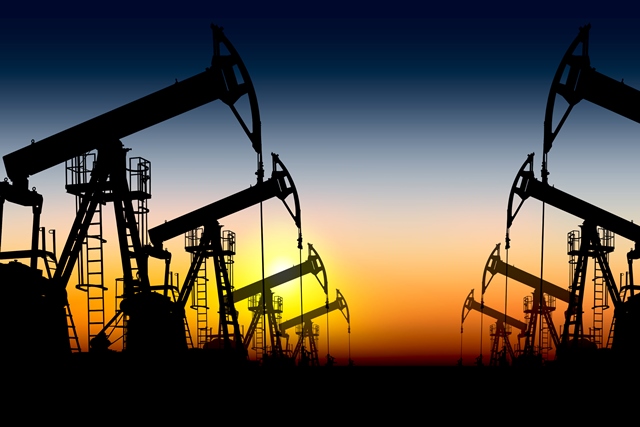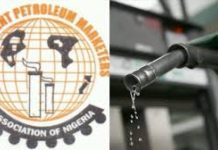Nigeria imported 22.5387 billion litres of petroleum products worth over N3.24 trillion from refineries abroad in 20. Data provided by the Petroleum Products Pricing and Regulating Agency (PPPRA), which was verified and validated by the Nigeria Bureau of Statistics (NBS), revealed that between January and December 2017, a total of 22.5387 billion litres of the products include Premium Motor Spirit (PMS) known as petrol; Automotive Gas Oil (AGO) known as diesel; HouseHold Kerosene (HHK) known as kerosene; Aviation Turbine Kerosene (ATK) and Low Pour Fuel Oil (LPFO) were imported into the country. LFPO, also known as black oil, is a fundamental input in steam generation in many labour-intensive industries like textile, construction, food and beverages.
“The petroleum products importation statistics for 2017 reflected that 17.31 billion litres of premium motor spirits (PMS), 4.28 billion litres of automotive gas oil (AGO), 340.33 million litres of household kerosene (HHK), 592.73 million litres of aviation turbine kerosene (ATK) and 15.61 million litres of low pour fuel oil (LPFO) were imported into the country in 2017,” the executive summary of the 2017 Petroleum Products imports and consumption (Truck out) statistics released by the NBS stated. The costs were borne by the Nigerian National Petroleum Corporation (NNPC), sole importer of petrol through crude swap contracts, and some private importers of diesel, kerosene, Aviation fuel and LPFO.
It was revealed that while about $2.1 billion was based on $0.65 (N198.2 based on N305 official exchange rate to a dollar) average cost, spent to import 970.26 million litres of kerosene, Aviation fuel and LPFO, the importation of 17.31 billion litres of petrol gulped about N2.3 trillion based on N133.28 per landing cost per litre in accordance with the PPPRA’s modulated price template. The importation of 4.28 billion litres of diesel during the year amounted to N727.6 billion, based on $0.57 (N173.85) landing cost according to the template given by Global Petrol Price.
Diesel is a totally regulated product in Nigeria. The months of July and August 2017, according to NBS data, recorded the highest volumes of PMS imported into the country at 1.88 billion litres while the highest volume of AGO and HHK were imported in March and April 2017 respectively. “Statewide distribution of truck-out volume for 2017 showed that 18.36 billion of premium motor spirits (PMS), 4.75 billion litres of automotive gas oil (AGO), 944.39 million litres of household kerosene (HHK), 554.61 million litres of aviation turbine kerosene (ATK) and 127.42 million litres of low pour fuel oil (LPFO) were distributed nationwide during the period under review,” the NBS data revealed.
Based on the NBS figure, a total of 22.5387 billion litres of petroleum products were imported into the country and a further check on this figure showed that a total of N3.23799 trillion was spent to import the products into Nigeria in 2017. In January 2017, 1,168,189,608 litres of petrol; 360,131,576 litres of diesel; 27,822,675 litres of kerosene and 83,279,103 litres of aviation fuel, totalling N240.33 billion, were imported into the country.
The volume differs in February with 1,269,967,517 litres of petrol; 443,169,348 litres of diesel; 1,066,780 litres of kerosene and 7,568,964 litres of aviation fuel, worth N248.02 billion, were imported into the country. A total of N327.02 billion was expended to import 1,673,981,201 litres of petrol; 504,596,385 litres of diesel; 12,169,874 litres of kerosene and 69,465,640 litres of aviation fuel into the country in the month of March 2017. The figure and volume slide in April with a total of N306.26 billion used to import 1,680,084,767 litres of petrol; 360,194,376 litres of diesel; 45,272,181 litres of kerosene; 43,582,756 litres of aviation fuel and 10,630,501 litres of (LPFO) black oil into the country.
The month of May also recorded importation of 4,984,338 litres of LPFO in addition to 1,506,270,122 litres of petrol; 387,560,574 litres of diesel; 11,845,544 litres of kerosene and 55,264,772 litres of aviation fuel – in all, N282 billion worth of petroleum products were imported in the month. For June, a total of N266 billion worth of petroleum products were imported – 1,432,593,475 litres of petrol; 360,142,865 litres of diesel; 38,051,823 litres of kerosene and 23,852,942 litres of aviation fuel. The figure and volume of imports surged in July with a total of N302 billion spent on importation of 1,878,303,469 litres of petrol; 206,994,850 litres of diesel; 39,917,731 litres of kerosene and 39,550,315 litres of aviation fuel. In August, the same volume of products was imported and the same amount was expended.
The August figure showed that 1,878,303,469 litres of petrol were imported; this goes with 206,994,850 litres of diesel; 39,917,731 litres of kerosene and 39,550,315 litres of aviation fuel gulping N302 billion. In September, 1,296,913,086 litres of petrol; 189,990,608 litres of diesel; 38,270,576 litres of kerosene and 22,794,949 litres of aviation fuel worth N217 billion were imported into the country. The volume increased slightly in October with about N284 billion worth of petroleum products imported into the country – 1,452,717,451 litres of petrol; 453,625,991 litres of diesel; 34,067,408 litres of kerosene and 25,545,050 litres of aviation fuel. In November, 886,387,826 litres of petrol; 420,675,959 litres of diesel; 40,022,375 litres of kerosene and 95,646,284 litres of aviation fuel worth N218.2 billion were imported. The volume rose in December with 1,189,800,027 litres of petrol; 383,552,757 litres of diesel; 11,909,002 litres of kerosene and 86,631,581 litres of aviation fuel imported into the country – with a total of N244.8 billion expended. In all, N3.24 trillion was expended on the importation of petroleum products between January and December 2017.
The N3.2 trillion spent to import the petroleum products in 2017, investigation revealed, is enough to build 88 units of 20,000-barrel capacity modular refinery. A 20,000 barrels per day capacity refinery takes an investment of about $113 million to build, according to the promoter of the integrated modular refinery being constructed at Tomaro, a coastal community in Amuwo-Odofin Local Council Area of Lagos. Nigeria’s four ailing refineries in Port Harcourt (two), Warri and Kaduna had gulped up over $2 billion in Turn Around Maintenance (TAM). The four refineries have a combined capacity to refine 445,000 barrels of crude daily.














